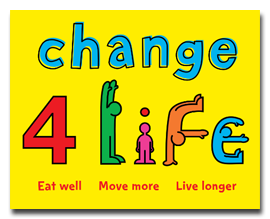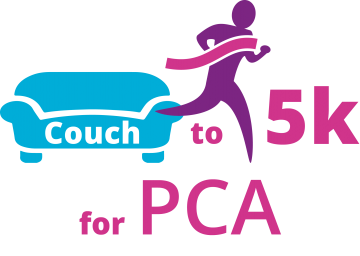Can screen time affect our weight and increase chances of cancer?
 Today WCRF published the full findings from their report Diet, nutrition and physical activity: Energy balance and body fatness – The determinants of weight gain, overweight and obesity. Its evidence and conclusions are being used to update WCRF‘s Cancer Prevention Recommendations.
Today WCRF published the full findings from their report Diet, nutrition and physical activity: Energy balance and body fatness – The determinants of weight gain, overweight and obesity. Its evidence and conclusions are being used to update WCRF‘s Cancer Prevention Recommendations.
Overweight and obesity is linked to pancreatic cancer, therefore, it is important to understand more about the changeable factors (such as screen time) that can influence weight gain, overweight and obesity.
How is obesity related to cancer and pancreatic cancer?
A recent study by the World Cancer Research Fund showed that greater body fatness, including weight gain, increases the risk of 12 types of cancer, including pancreatic cancer.
A study in 2011 estimated that around 12 per cent of all pancreatic cancers in the UK are attributable to being overweight or having obesity. Another study in 2008 found that obese women who carry most of their excess weight around their waist rather than their hips are “seventy per cent more likely to develop pancreatic cancer”.
What does this new report say about screen time and obesity?
The report found strong evidence that spending more time in front of the television or on a computer (at work or at home) increases the risk of weight gain, overweight and obesity. This finding was particularly strong in children.
Obviously, just looking at a screen won’t lead to weight gain, but being inactive (sedentary), over long periods of time can shift your ‘energy balance’ (see below). Being sedentary can also interfere with your appetite, making it harder to recognise when you are full.
Screen time can also increase exposure to adverts for ‘junk’ food and drink that you may, these are are often targeted directly to kids. It’s also quite common to snack while watching screens – being distracted can lead to unconsciously eating more.
What is ‘energy balance’ and why is it important?
Balancing the amount of energy (calories) we put into our body versus the amount we use up is known as energy balance. This is determined by the combination of food and drinks consumed, requirements for normal bodily functions and the level of activity (or inactivity).
Consuming more energy than we use up, over the long term, leads to weight gain.
Screen time is increasing globally
Recent rapid economic development, changes to agriculture and globalisation have impacted the foods and drinks we consume (known as the nutrition transition). At the same time, there have been declining numbers of manual jobs, changes to transport, decreasing levels of physical activity and an increase in inactive habits (including screen time). Advances in technology has also increased time spent using screens, both at work and during leisure time.
With the number of people living with overweight and obesity worldwide projected to rise if trends remain unchanged, concerted action is needed – now more than ever – to help reverse these trends.
So, what can we do?
The findings in this report by WCRF suggest that we should try to limit our screen time and maintain an energy balance ensuring that we do not consume more energy than we use. This is something that we can make a conscious effort to be careful of with regular exercise and less screen time
According to Cancer Research UK if you are overweight, you can reduce your risk by avoiding gaining more weight. In other words, losing weight can help reduce the risk of cancer. The best way to lose weight for most people is by eating and drinking healthily and moving more, all of which can reduce the risk of cancer independently.
We do understand that losing weight and keeping it off can be incredibly hard. We have a few tips for you below.
Tips for maintaining a healthy weight and eating a healthy diet.
Keeping a healthy weight not only cuts your risk of pancreatic cancer but could also reduce your risk of nine other types of cancer too.
- If you would like to lose weight, aim for a slow steady weight loss.
- If you would like some advice from a medical professional, you can talk to your GP. You may be eligible to have a reduced gym membership.
- Try to combine your daily exercise with a diet rich in vegetables, fruit and whole grains.
- For motivation why not join a running group with friends or challenge yourself and set yourself a goal by signing up to an event. You don’t have to go mad and do a marathon – start small perhaps with Striding for Survival or Couch to 5K for PCA!
There are also lots of tools and apps to help you, including:



